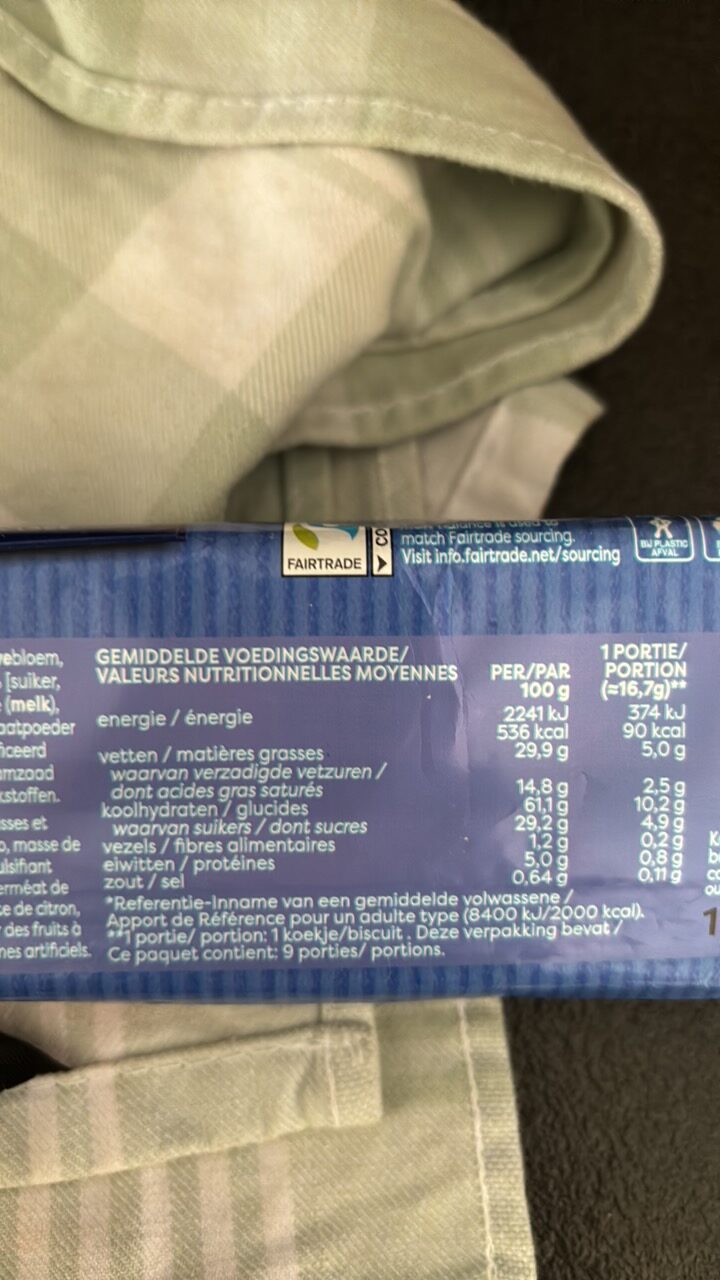
Barcode: 740349006263
gemiddelde voedingswaarde
HALAL
📝 Reason: All listed ingredients are plant-based or mineral (wheat flour, sugar, potato powder, salt) or milk, which is Halal as per Islamic laws (Quran 5:3). No meat, doubtful, or Haram additives (such as E120, E124, E354, E999) are found in the ingredient list. As per international Halal authorities such as IFANCA and multiple ingredient resources, these are considered Halal unless contaminated with prohibited substances. Final ruling: Halal.
📄 Certificates: Fairtrade, Vegetarisch
Ingredients:
Details
Understanding the Halal Status of Gemiddelde Voedingswaarde
In today’s diverse food landscape, understanding the halal status of products is crucial for many consumers. One such product is the Gemiddelde Voedingswaarde. In this post, we will delve into the halal status of this product and analyze its ingredients to ensure it aligns with Islamic dietary laws.
Overview of Halal Status
The recent inspection of the Gemiddelde Voedingswaarde shows that its halal status is verified and officially classified as HALAL. This classification is based on the ingredient analysis and expert guidance derived from reputable halal certifying bodies such as IFANCA. As per Quran 5:3, only halal substances are deemed acceptable for consumption.
Ingredient Breakdown
The ingredients of Gemiddelde Voedingswaarde include: bloem (flour), suiker (sugar), melk (milk), patpoeder (potato powder), zout (salt), and sel (another term for salt). Let’s take a closer look at each ingredient and understand its halal status.
1. Bloem (Flour)
Status: Halal
Bloem translates to flour in Dutch and is typically made from wheat. As a plant-based grain ingredient, it is confirmed to be halal. According to trusted sources, such as Islam Awareness, flour poses no halal concerns.
2. Suiker (Sugar)
Status: Halal
Suiker means sugar in Dutch. Sugar can come from sugar cane or sugar beet. As long as it is not processed with any forbidden substances, it retains its halal status. You can find more detailed guidelines on sugar from [IFANCA’s Ingredient Directory](https://www.ifanca.org/consumer/ingredients-directory/).
3. Melk (Milk)
Status: Halal
Melk is Dutch for milk. Milk from cows is considered halal if it is pure and free from any haram mixtures. The Halal Food Foundation also provides extensive resources confirming the halal nature of milk, which can be accessed [here](https://www.halalfoodfoundation.co.uk/halal-ingredient-guide/).
4. Patpoeder (Potato Powder)
Status: Halal
Patpoeder refers to potato powder, a derivative obtained from potatoes. As a plant-based component, it is absolutely halal. Further information can once again be found on the Halal Food Foundation’s resource site.
5. Zout (Salt) and Sel (Salt)
Status: Halal
Zout (Dutch) and sel (French) indicate salt. Being a mineral, salt is inherently halal. According to several halal guides, such as the one provided by Islam Awareness, there are no concerns with this ingredient.
Conclusion on Halal Status
Upon reviewing each ingredient, we can confidently assert that Gemiddelde Voedingswaarde adheres to halal dietary laws with a solid foundation of compliance. None of the ingredients mentioned are derived from animal sources or contain questionable additives. Therefore, consumers in the halal community can enjoy this product with peace of mind.
Certifications and Trust
In addition to its halal status, Gemiddelde Voedingswaarde is also certified Fairtrade and Vegetarian. This underlines the brand’s commitment to sustainable practices and ethical sourcing, making it a dependable choice for health-conscious consumers.
For anyone inquiring about the dietary suitability of Gemiddelde Voedingswaarde, the answer is clear — it is a halal product that meets all required standards.
Be assured, you can confidently choose this product knowing it’s halal!
